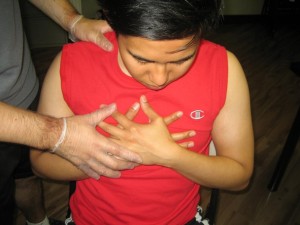Cardiogenic shock arises if the heart is significantly damaged that it could no longer supply adequate blood to the vital body organs. Due to the failure of the heart to pump enough nutrients to the body, the blood pressure fails and the organs malfunction.
This condition is considered uncommon but once it occurs, it is a serious medical emergency. In the past, no one can survive the condition. At the present, half of cases can survive due to the improved treatment options and early recognition of the symptoms. Nevertheless, the outlook is poor if the condition is ignored and left untreated. Get in touch with a doctor or call for emergency assistance if any of the symptoms of the condition are present.

Indications
The indications of cardiogenic shock can arise rapidly. The symptoms might include the following:
- Anxiety and confusion
- Sweating and cold extremities
- Abrupt shortness of breath
- Rapid but weak heartbeat
- Fatigue due to hyperventilation
- Low or absent urinary output
- Coma if treatment is not started right away
The individual should be taken to the nearest emergency department right away or call for emergency assistance if any of these symptoms are present.
What are the causes?
Cardiogenic shock is typically due to a heart attack. During a heart attack, the blood flow via the arteries is limited or blocked entirely. This limitation can lead to cardiogenic shock.
Other conditions that can cause shock include:
- Pericardial tamponade
- Pulmonary embolism
- Ventricular tachycardia
- Abrupt valvular regurgitation
- Ventricular fibrillation
- Rupture of the wall of the heart
- Inability of the heart muscle to function properly
Risk factors
- Previous history of myocardial infarction
- Buildup of plaque in the coronary arteries
- Long-standing valvular disease
Management
When dealing with cardiogenic shock, the doctor should determine and manage the cause. If heart attack is the cause, the doctor might administer oxygen and insert a catheter into the arteries that supply the heart muscle to get rid of the blockage.
In case arrhythmia is the underlying cause, the doctor might fix the issue using electrical shock or defibrillation. The doctor might also provide medications and fluid to improve the blood pressure and increase the amount of blood the heart pumps.
More Information / Disclaimer
The information posted on this page on cardiogenic shock is for learning purposes only. Learn to recognize and manage circulatory emergencies by taking a standard first aid course with Mississauga First Aid.
